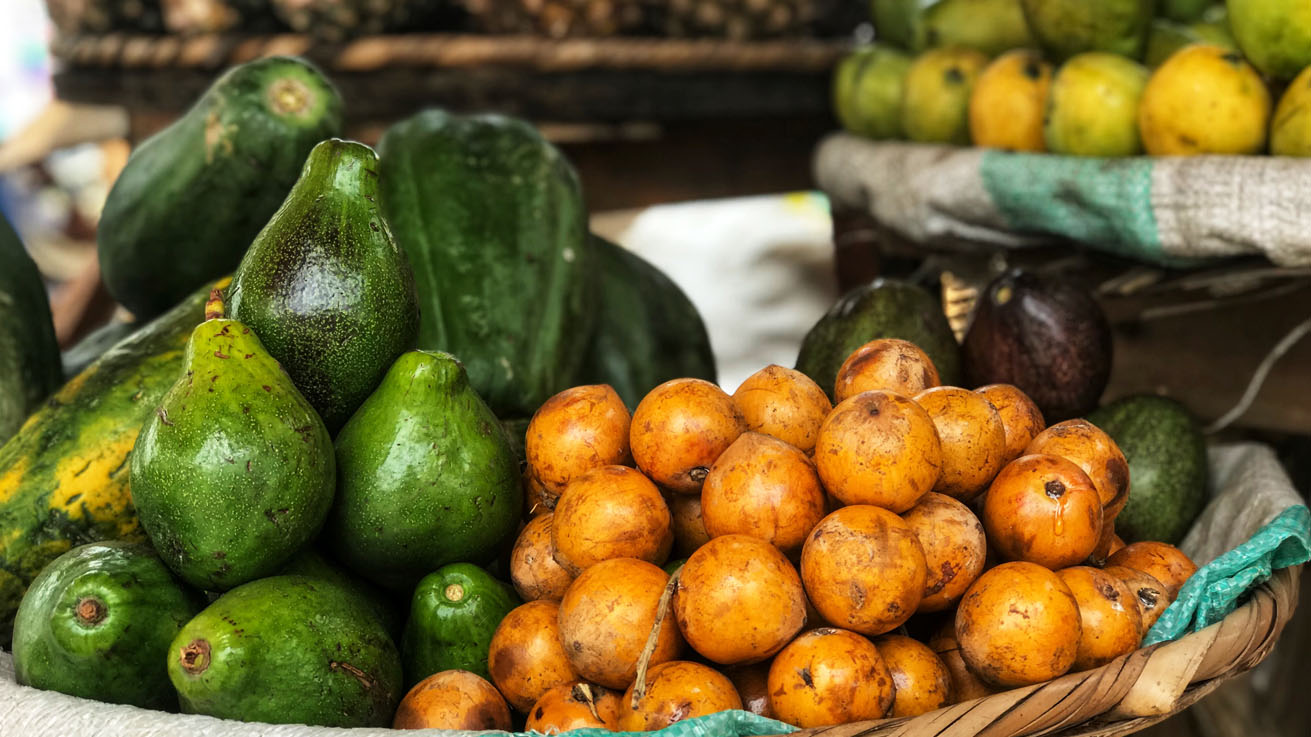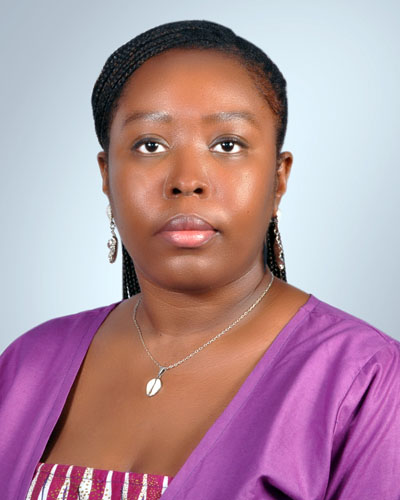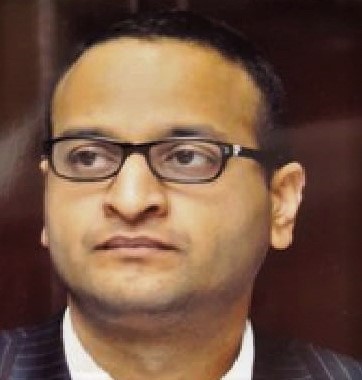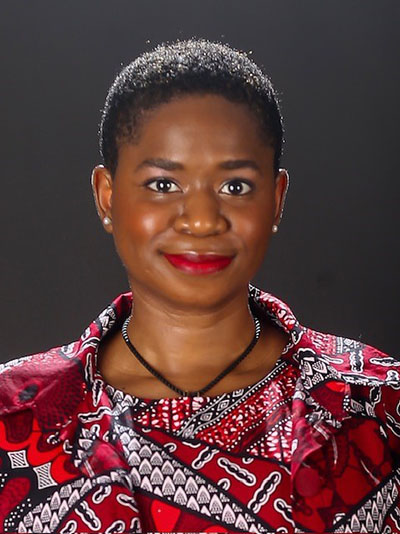
Hear from four Accredited Trainers of the SDG Impact Standards from the African Sahel region and Small Island Developing States on their thoughts.
UNDP, with the support of the Executive office of the Secretary-General, made possible by the generous contribution from the Italian Ministry of Environment and Energy Security, was able to provide scholarships for the SDG Impact Standards Train-the-Trainer Course. The scholarship was aimed at sustainability strategy consultants and impact measurement and management practitioners specialized in food systems across the African Sahel region and Small Island Developing States (SIDs).
Private finance and business are key to transforming food systems towards sustainability. Investors and businesses in the food sector have an unrivalled opportunity to contribute positively to reducing hunger and malnutrition, safeguard the environment, cut emissions, create high-quality jobs and even contribute to peaceful societies. What is often needed is clear guidance for how to make business and investment decisions that maximise net-positive impacts - on people, planet and profits.
Find out what sustainability means to the four successful candidates of the scholarship who have subsequently become Accredited Trainers of the SDG Impact Standards.
 Alida Ouedraogois
Alida OuedraogoisAlida Ouedraogo is a seed project officer at Sinergi Burkina, a private equity fund dedicated to the financing and support of start-ups and Small and Medium-sized Enterprises (SMEs) in Sub-Saharan Africa. Before joining Sinergi, she was previously at the Bank of Africa Burkina Faso as a Business Manager for large companies and then at Coris Meso Finance as Business Manager for SMEs. Her career path has allowed her contact with different sectors such as agriculture, finance, trade, construction, and mining.
Agribusinesses make up almost 50% of our portfolio companies, and so we are very exposed to the opportunities and challenges that entrepreneurs and companies face in this sector. We are particularly focused on companies that are impact-driven in their approach to addressing local development challenges. The connection between sustainability and food systems is evident. Across the value chain, from production, nutrition, infrastructure, markets, and trade, challenges and opportunities exist. With the recent Russia-Ukraine crisis, COVID-19 recovery, and Climate Change, it has become necessary to rethink the way businesses are done. Delivering solutions that address challenges across this value chain will not only deliver positive impact for people and planet, but also for business. Several businesses are already reporting positive financial performance as a result of their “impact-aligned” business practices. These are the kinds of businesses we support and invest in at Sinergi. The SDG Impact Standards are very timely in this regard. They provide a framework for how we can make management decisions in relation to our impact performance and the performance of our portfolio companies. The business world has a framework for managing financial performance, so why not one for impact? I see this being the playbook for how we make investment decisions, and how we guide our companies to make their business decisions. What sticks out the most for me is the fact that the SDG Impact Standards are not an external tool disconnected from regular daily business practices. They encourage the integration of sustainability into business strategies and provide options to guide decision-making in a way that best optimizes impact.
 Dr Amit Achameesing
Dr Amit AchameesingDr Amit is the Chief Executive Officer (CEO) of the National Advisory Board (NAB) for Impact Investing in Mauritius. The NAB are part of the Global Steering Group and seek to mobilize capital and invest into impact projects that benefit people and the planet.
He is also the Executive Secretary of the Global Transformation Foundation, whose mission is to promote the emergence of enlightened leaders and use public policy and technology to create a modern, sustainable, and inclusive Mauritius and Africa.
Dr Amit also serves as the Head of Programme and Lecturer on the London School of Economics International Programmes
“The socioeconomic challenges of our time borders on issues of food insecurity, poverty, climate change, inequalities, etc. In Mauritius, one of the most prevalent economic challenges is the breakdown in supply chain and related dependency of imported inputs. This has left the economy extremely vulnerable to external economic factors." Within food systems, to buffer against this challenge, Amit has proposed integrating modern technologies in agriculture so that younger generations can be inspired to become agri-entrepreneurs, fostering local production, innovation, and profitable bio-farming models. He proposes a complete revamp of the value chain, including through encouraging businesses to incorporate elements like proper nutrition, environmental concerns into production processes to create more sustainable food systems.
Amit participated as a panellist at the Africa Impact Summit held in South Africa in July 2023. He has been vocal about adopting a new economic model, based on stakeholder capitalism, as part of the African Union agenda of 2063. “The move from shareholder capitalism to stakeholder capitalism is an urgent call as SDGs progress on the continent has been lagging. As a UNDP accredited trainer on the SDG Impact Standards, Amit is working with policymakers and companies across the continent to lobby that in addition to financial reporting, companies also deliver on SDG reporting. As this happens, the African continent will lead the world in adopting a new economic paradigm, that in addition to profit for shareholders, will ensure that companies also measure the impact of its operations on other stakeholders in society."
 Fatima J. Umar
Fatima J. UmarFatima Umar is an SDG Finance Analyst at the United Nations Development Programme (UNDP) in Nigeria. Her core focus includes driving UNDP's development finance initiatives by leveraging public and private sector resources to achieve equitable and inclusive progress. Fatima works across several themes including sustainable finance, impact measurement and management, blended finance, policy and advocacy, and programme management.
She leads UNDP’s SDG Investment Brokering programme in Nigeria, where efforts are made to increase access to finance and markets for impact-driven ventures across the country.
“The private sector plays a critical role in driving sustainable development, especially in sub-Saharan Africa, where challenges like food insecurity, the climate crisis, conflicts, and fiscal constraints require innovative solutions. The Sustainable Development Goals (SDGs) offer a roadmap to address these issues, with a focus on food systems to reduce poverty and enhance productivity and resilience. To effectively contribute to these goals, organizations must measure and manage their environmental, social, and economic impacts.
“Investors need to comprehend how their strategies affect people and the planet, while businesses must align their decisions with stakeholder needs. The SDG Impact Standards, developed by UNDP, prioritize stakeholder-centric decision-making. These standards offer a comprehensive approach for organizations to assess and improve their contributions to society, the environment, and the economy. Proactive impact management allows businesses and institutions to align their operations with sustainable development goals and meet stakeholder expectations.
“Peter Drucker's insight that, ‘You can't improve what you don't measure’ is relevant. However, measurements must serve a purpose. The SDG Impact Standards provide 12 actionable steps to use measurements effectively in decision-making, improving SDG outcomes for stakeholders. For food systems actors and businesses, understanding and measuring what matters to stakeholders are keys to achieving inclusive growth.”
 Yewande Ososanya
Yewande OsosanyaYewande Ososanya is the founder of Strateco, an Africa focused consultancy that helps organisations develop and execute strategies for sustainability and impact. Strateco’s services include sustainability training, impact assessment and reporting. Yewande is a Chartered Accountant of the Institute of Chartered Accountants of England and Wales (ICAEW). She is a participant of the Nigerian Adoption Readiness Working Group for the International Sustainability Standards Board (ISSB) Standards. Prior to founding Strateco, Yewande was Sustainability Strategy Lead at PwC Nigeria.
“The social and environmental challenges we face today are not easily solved in isolation. However, I believe that constraints to achieving societal wellbeing and sustainable development can be overcome through increased capacity, partnership, and innovation. It will take consensus and intention to solve these challenges. The SDGs present a significant opportunity for governments, investors, enterprises and NGOs to contribute to solutions. Companies are increasingly responding to the SDGs by rethinking business models, to address development challenges while generating financial returns.
“Within food systems for example, food and packaging waste remains a major challenge. There are however innovative ideas surfacing, such as the processing of food waste to be used as fuel, and countries are demonstrating transformation in their plastics value chains, by integrating informal workers into the formal economy, which improves livelihoods, reduces plastic waste, and creates more efficient markets. Much more impact can be achieved if we move resources, energy and ideas towards addressing those problems that are actually all of our problem.
“This is where the SDG Impact Standards come in. The SDG Impact Standards provide a framework for decision making that focuses on the way business decisions affect all stakeholders. Not just shareholders, or customers, but also the communities and environments that are impacted by activities and operations of businesses. So instead of being passive partakers in the journey to the “SDGs, the SDG Impact Standards guide businesses to make deliberate, informed decisions that are more likely to create positive social and environmental value in addition to financial value.”
Learn more about the SDG Impact Standards and training here.
Sustainable Development Goals © 2023 SDG Impact Terms and Conditions